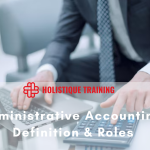Change is essential for any thriving business, but the sad truth is that decision-making and operational changes are often taken very lightly. Process managers will often jump in feet first, knowing that change is required, without fully considering all of the potential outcomes and possible threats that could be opened up by improper planning.
A proper feasibility analysis weighs the pros and cons of each process to determine whether the plan will work before creating a change framework or strategically evaluating how to implement new procedures.
A feasibility analysis is invaluable as it allows you to discover what’s worth it and what isn’t when it comes to making changes and developing your company strategy. This means that you don’t waste time and resources on projects that won’t bring a return on your investment.
Upon completion of this course, participants will be able to:
- Properly structure an effective feasibility analysis.
- Understand all of the components important for feasibility checking.
- Develop plans based on the economic and commercial company structure.
- Analyse findings and come to conclusions based on data.
- Create a forward-thinking plan of action to move your business forward.
- Understand the risk areas using a SWOT analysis and how to avoid them.
- Create contingency plans to ensure the smooth running of change processes.
- Measure and monitor outcomes to move forward sensibly and strategically.
- Create links between strategic thinking and operational management.
This course is designed for anyone responsible for company or departmental strategic changes to acquire a return on investment. It would be especially beneficial for:
- Business Owners
- Directors
- Operations Managers
- Planning & Performance Managers
- Project Planners
- Finance Professionals
- Marketing Managers
- Team Leaders or Supervisors
- IT Professionals
- HR Executives
This course uses a range of adult learning styles to aid with group work and strategic thinking. The course contains practical activities and seminar discussions to determine the best action for an accurate feasibility analysis.
You’ll create decision trees, utilising the best project management methodologies and real-life case studies as examples, to create a future plan for your business.
Day 5 of each course is reserved for a Q&A session, which may occur off-site. For 10-day courses, this also applies to day 10
Section 1: The Concept of Feasibility
- What is feasibility?
- Why does your business need an accurate feasibility analysis before project rollout?
- The benefits of feasibility studies.
- What to include in your feasibility study.
- How to improve your process changes based on feasibility.
- Letting an idea go if it doesn’t look feasible.
Section 2: Accurate Analysis & Technical Research
- SWOT analysis
- Risk factors
- Assessing current position and steps needed to reach the desired position.
- Quantifying that gap in resources and equipment.
- The cost of technological changes - are they possible?
- Past feasibility studies. What’s worked and what hasn’t?
- Analysis life-cycle and feasibility assessment.
Section 3: Economic & Commercial Factors of Feasibility
- Understanding your budget.
- Budgeting your proposed change.
- Contingency from problems and ability to provide economic solutions.
- Your innovation and its impact on the business model.
- Analysing tariffs, quotas and funding.
- Handling stakeholder expectations.
- Cross-cultural integration.
Section 4: Understanding Finances and Budgeting
- DCF and NPV considerations
- Securing finances from external sources.
- Understanding finance models for loaning.
- Creating plans for additional costs and how to distribute.
- Modify and reconsider financial planning to include additional resources where required.
Section 5: Management & Teamwork
- Writing your feasibility report.
- Accurate record-keeping for future thinking.
- Presenting changes to gain buy-in.
- Motivating a team to work toward a central end goal.
- Dealing with outliers and planning for hurdles.
- Performance management structures to stay on task.
- Gaining management support.
- Workload sustainability.
Section 6: Future Thinking and Journey Mapping
- Feedback and review.
- Lessons learned.
- Modifying processes.
- Testing contingency plans and eliminating high-risk areas.
- Identifying the next steps to move forward.
- Audit processing and maintaining a future-proof environment.
Upon successful completion of this training course, delegates will be awarded a Holistique Training Certificate of Completion. For those who attend and complete the online training course, a Holistique Training e-Certificate will be provided.
Holistique Training Certificates are accredited by the British Assessment Council (BAC) and The CPD Certification Service (CPD), and are certified under ISO 9001, ISO 21001, and ISO 29993 standards.
CPD credits for this course are granted by our Certificates and will be reflected on the Holistique Training Certificate of Completion. In accordance with the standards of The CPD Certification Service, one CPD credit is awarded per hour of course attendance. A maximum of 50 CPD credits can be claimed for any single course we currently offer.
- Course Code MG2-118
- Course Format Classroom, Online,
- Duration 5 days












